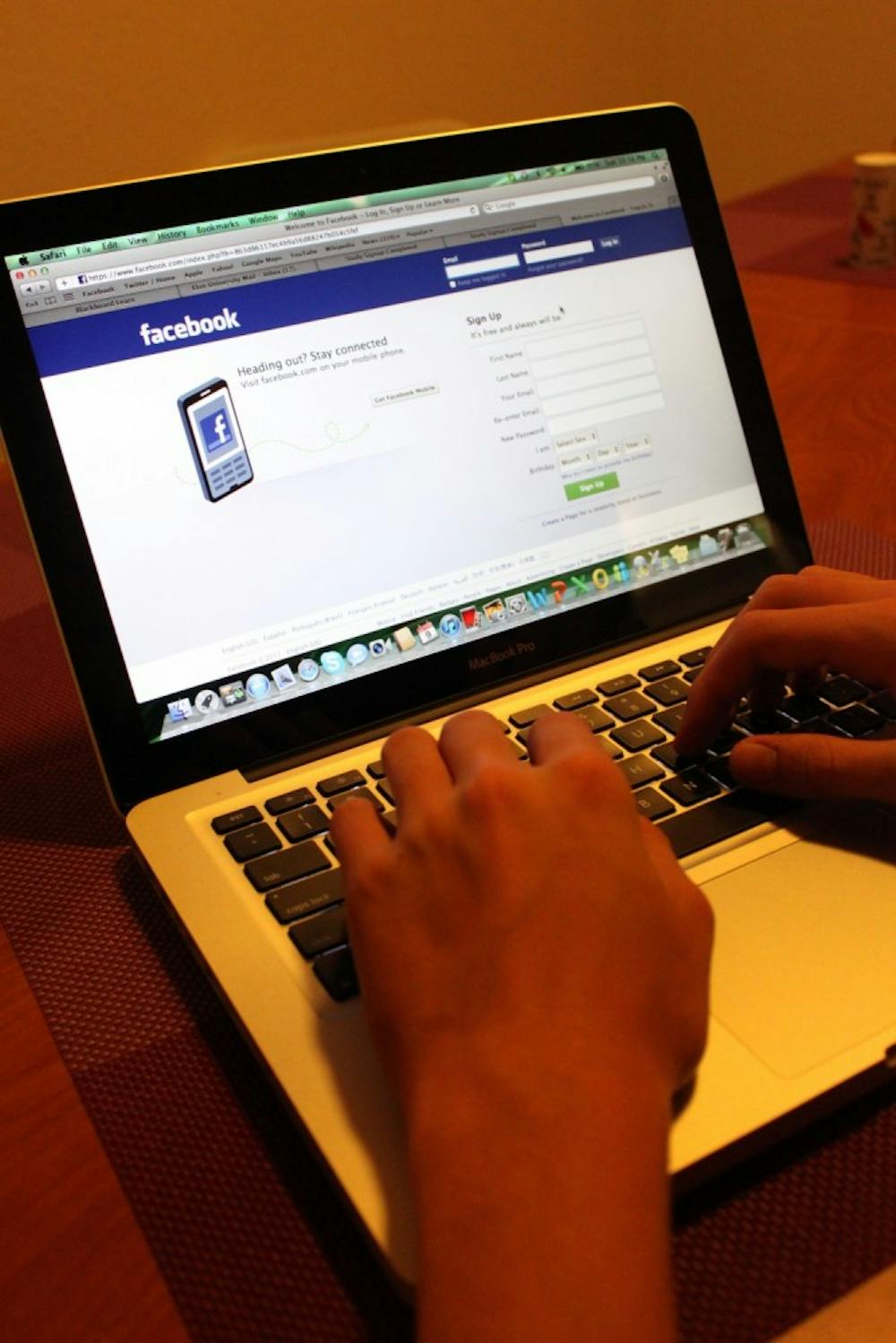High school guidance counselors frequently warn their students they are constantly being watched by prospective colleges via the information they post on social networking sites like Twitter and Facebook. Although college admissions offices have started using Facebook as a tool to evaluate their applicants more frequently, Elon University's Office of Admissions is not among the list.
"It's not a part of our formal admissions process by any stretch," said Cindy Barr, assistant dean of admissions. "Last year, we had over 9,000 applications and we have 13 admissions counselors that travel for our office, and so there's no way that we would have time to go into every single person's Facebook account. And similarly to interviews, if we can't do it for everyone, we're not going to do it on an individual basis."
While Elon does not evaluate material not sent directly to its admissions office by prospective students, admissions counselors have discussed why other colleges do take such publicly accessible information into account.
One of the reasons Elon has actively decided not to look at students' profiles, Barr said, is because students' online presences are not always fully controllable.
"Students can represent themselves one way online, due to social pressures, that may or may not be entirely accurate about that individual," she said. "I never take what I see on Facebook as absolute truth or reality. People can represent themselves digitally one way and that may be very different than who they are authentically."
Prospective Elon student and high school senior Andreya Cybriwsky from Boston said she thinks it is an invasion of privacy for colleges to evaluate students based on their Facebook profiles. She said she has not been warned too frequently by her guidance counselors at school, but she does think it's a good way to find out who an applicant really is.
So far, she has not deleted her Facebook profile or scrubbed its contents, but she does mark her profile as private.
"I haven't really sent in any applications, so I haven't really been worried about it yet," she said. "But I'm sure soon I'll be really watching out, making sure what I'm posting, what my friends are saying, is really edited."
Barr meets hundreds of students on her recruiting tours and said she will occasionally look up a student on Facebook solely for the purpose of putting a face with a name. But the only official correspondence she has with prospective students on Facebook is through the fan page established for her as an admissions counselor.
"I was very quick to tell them, 'It's a fan page,'" she said. "'You're not friending me, I'm not going to your profile, that's not part of your evaluation process.' So I think we want our presence on Facebook to be a resource for students but not an evaluative tool."
Barr said she is unaware of college admissions officers — and even potential employers — having special privileges to see private profiles, as the rumors tend to go, but Stephanie Crouse from Biglerville, Pa., also a high school senior, said she has been warned at school about keeping a professional, clean profile on Facebook.
"It shows what kind of a person you are, how serious you are about schoolwork," she said. "You post things on there you don't think colleges would see but they will"


